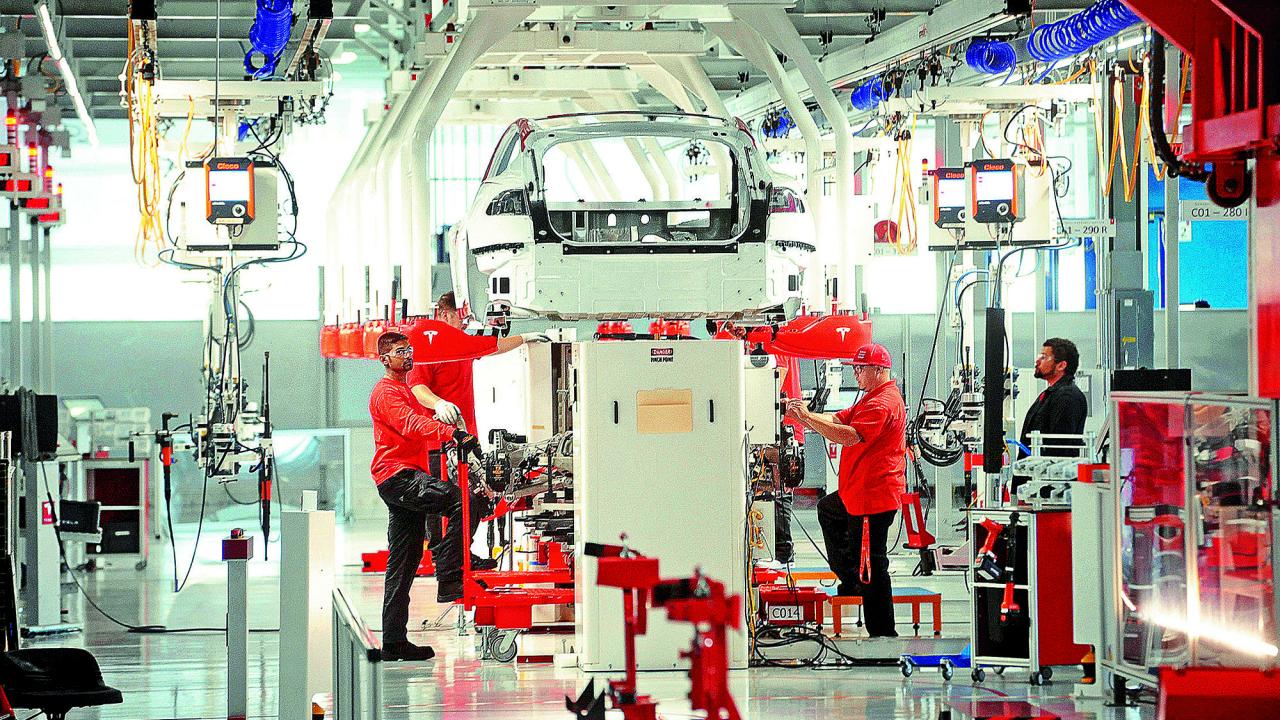
Even though the new US president has once again pulled the United States out of the Paris agreement and said he will reverse “the electric car mandate,” market forces will continue to drive demand for this mobility option.
With the United States withdrawing from the Paris Agreement on climate change for the second time, there will be a “delay in technological change and the transition to zero emissions during Donald Trump’s term in office,” although automakers operating in Mexico say they will maintain their plans to manufacture electric cars in line with consumer demand.
As promised during his campaign, on his first day in office, Trump signed the executive order to withdraw the United States from the Paris Agreement, which included various measures to reduce greenhouse gases.
Among them, the goal that by 2030, at least 50% of motor vehicle sales in the United States consist of electrified units.
“We’re going to end that electric vehicle mandate to once again save the lives of our country’s auto workers. In other words, they’re going to be able to buy whatever car they want. We’re going to build cars here in the United States at a pace that nobody could have imagined just a few years ago,” Donald Trump said in his first speech on Capitol Hill after being sworn in for a second term.
However, the president has not yet reported on the possible elimination of subsidies for the purchase of electric vehicles promoted by former President Joe Biden in 2022, nor on incentives to promote the manufacturing of batteries and semiconductors in the United States.
The move to reverse U.S. involvement in environmental matters will cause “a delay in technological change in the United States and Mexico, because there is no longer a sense of urgency; the (vehicle) manufacturers located in the United States and Mexico will no longer be in a hurry to increase their production of electric vehicles” and that could impact production in Mexico, said Alberto Bustamante, general director of the National Agency of Suppliers of the Automotive Sector (Anapsa).
He explained to El Economista that the withdrawal of the United States from the agreement against climate change will no longer force car manufacturers to accelerate the transition to zero emissions, and relaxes the policy that required them to manufacture and sell 50% of their production in electric cars by 2030, but he ruled out that the measure will significantly impact the plans of the United States automakers and those operating in Mexico.
He explained that these will be governed by supply and demand in both countries, where consumers like this type of units, so projects to increase the production of electric cars in Mexico will continue to rise, as long as American consumers continue to demand them.
In this regard, General Motors (GM), the largest manufacturer and exporter of cars in Mexico and the second largest seller of electric cars in the United States, has confirmed that it will continue to manufacture and sell electric units, in accordance with consumer demand.
GM has made multimillion-dollar medium- and long-term investments in Mexico to convert its plants in the country and in the United States to manufacture electric vehicles (EVs), so much so that this year it will announce several assembly projects for new models that will be launched on the market.
The American automaker will start production of the Cadillac Optiq EV in Mexico and the Cadillac Escalade IQ (in the United States). The company currently manufactures electric versions of its Equinox and Blazer SUVs at its plant in Ramos Arizpe, Coahuila.
Stellantis also confirmed new investments in Mexico to transition to manufacturing green cars, with the expectation that sales will continue to rise, both in the United States and Mexico.
TESLA, AFFECTED
According to automotive industry experts, Tesla, owned by billionaire Elon Musk and an advisor to President Trump, would be most affected as a manufacturer and marketer of electric cars in the country if certain incentives for the purchase and manufacture of vehicles were eliminated.
During his election campaign, Trump threatened to eliminate the $7,500 tax credit currently offered by the US government to citizens who buy electric cars.
Ignacio Martínez, Coordinator of the UNAM Laboratory for Analysis of Trade, Economy and Business, stated that Trump threatens to return to an aggressive economic nationalism, apply a strong commercial protectionism, and a very conservative foreign policy against Mexico.
Although he is confident that automotive investments will continue with their electrification plans, since Trump's term in office is four years, on the other hand, investments are long-term, perhaps in some cases they will extend it.









